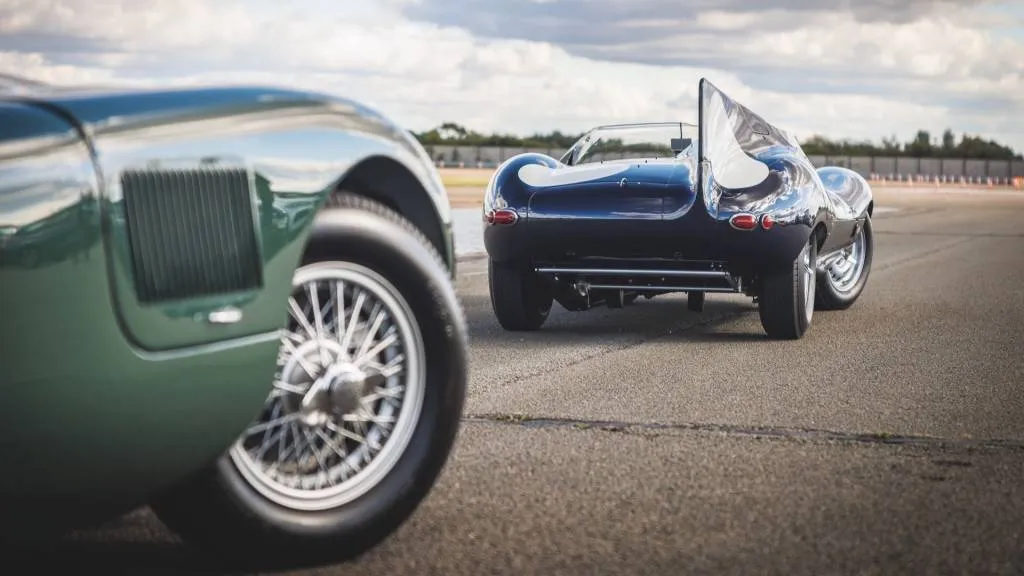Jaguar is still building continuation versions of the classic C-Type and D-Type, and to remind potential customers of that fact, it’s bringing samples to Monterey Car Week.
As part of a world tour that also included stops in the United Arab Emirates, Switzerland, and Japan, the automaker’s Jaguar Classic division will show the C-Type and D-Type continuation cars at The Quail: A Motorsports Gathering and the Rolex Motorsports Reunion—two of Monterey’s marquee events. This is the first time Jaguar Classic has exhibited cars at Monterey Car Week since 2018, according to a company press release.
Jaguar D-Type continuation car
Continuation cars are considered distinct from replicas because, as the name states, they are viewed as a continuation of the original production run. Jaguar originated the concept with its six Lightweight E-Type continuation cars completed in 2014 and 2015. The original plan was to build 18 cars, but only 12 were completed in period. So Jaguar built six more.
Jaguar then applied the same concept to the D-Type, announcing in 2018 that it would build 25 cars to complete the original planned production run. Just 75 original D-Types were built, but Jaguar always planned to make 100 cars.
The D-Type won the 24 Hours of Le Mans three years straight from 1955 to 1957, but became obsolete before the 100-car production run could be completed. Some leftover D-Type chasses were converted into XKSS road cars. The XKSS got its own continuation series to replace nine cars that were destroyed by a fire at Jaguar’s Browns Lane factory in 1957.

Jaguar C-Type and D-Type continuation cars
The C-Type preceded the D-Type chronologically (it was revealed in 1951), but the continuation version arrived after the D-Type continuation, in 2021. The C-Type is also a serial Le Mans winner, taking first place in 1951 and 1953. The continuation version is based on the 1953 Le Mans winner, so it has disc brakes, which the C-Type helped pioneer. Jaguar plans to build 16 continuation cars, supplementing the original 53-car run.
Each continuation car takes over 3,000 hours to build by hand, according to Jaguar. Cars are built at a dedicated facility in Coventry, U.K. Jaguar hasn’t shared prices, but these continuation cars give buyers a chance to own factory-backed legends at prices likely lower than those of the surviving cars.
Jaguar isn’t the only company building continuation cars. Ecurie Ecosse, a Scottish race team that once campaigned the C-Type, has announced its own continuation version of that car. Aston Martin has done continuation DB4 GT, DB4 GT Zagato, and DB5 “Goldfinger” movie cars. Bentley has launched continuation series of its 1920s Speed Six and Blower cars, and even plans to race the latter.
